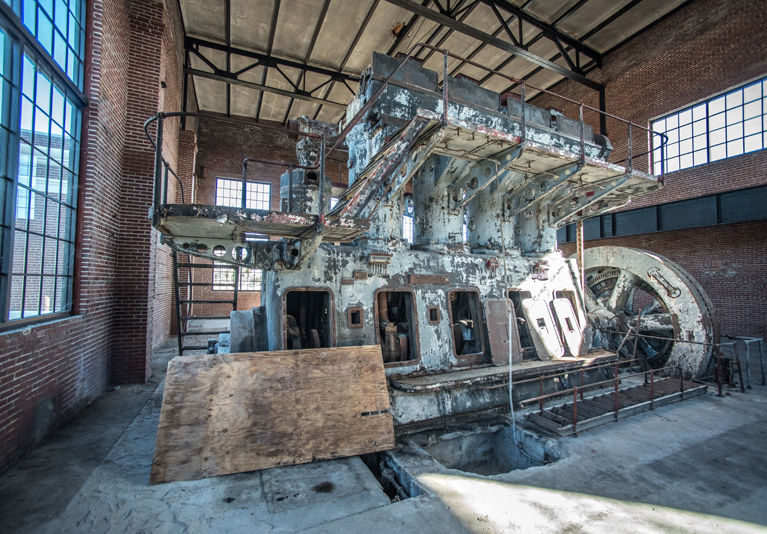
VERO BEACH — An out-of-town judge has ruled in favor of the City of Vero Beach, nearly three years to the day after developers filed a $1.5 million breach of contract suit involving the city’s environmentally contaminated old diesel power plant.
Phil Barth and David and Charles Croom are ordered to pay the city’s attorneys’ fees as well as an estimated $130,000 in back rent on the plant, a claim arising from the city’s countersuit.
Attorney Buck Vocelle represented the developers’ company, B-B Redevelopment. Eugene O’Neill served as lead attorney for the City of Vero, along with Sean Mickley. The city also hired John Frost, a Bartow-based attorney who is one of the top trial lawyers in the state.
Barth and the Crooms were rehabbing the derelict plant in the hopes of turning it into a hub of the downtown’s evolving arts and restaurant scene. The 45-year lease agreement went into effect in 2005, at a time when environmental contamination persisted at the site, the result of decades of diesel fuel being off-loaded from tanker cars on the adjacent railroad tracks.
The fuel powered giant generators garaged in the brick building that produced electricity for the city from the 1920s until the early 1990s.
The developers said the contamination forced them to halt their rehabilitation project and claimed the city was disingenuous about the progress of the cleanup, for which the city was responsible, according to the terms of the lease.
The city countered it had thoroughly informed its tenants about the progress of the cleanup effort. It also argued that development could have proceeded despite the ground contamination.
The 5-day trial, which took place the last week of June, was held at the Indian River Courthouse but it was presided over by a Seminole County judge, John Galluzzo. He was appointed to the case when the judges in the 19th circuit, which includes Vero, recused themselves because the wife of one of the developers is Janet Croom, a judge in the circuit.
In his ruling, Galluzzo noted that the city “was in breach at the time of the entry of the commencement date on the lease,” citing incomplete remediation and failure to provide a certificate to that effect as the lease required. But the judge went on to say that the developers waived those conditions when they entered the start date on the lease.
Even without the waiver, the ruling went on, the developers failed to establish that any breach by the City had material consequences on its ability to proceed with rehabbing the plant.
Vocelle had tried to make the case for his clients that limits on digging in certain areas of the property kept them from proceeding with so-called “vertical” rehab – improvements to the structure itself – after the team invested more than $1.5 million in cleanup and improvements to the site.
The judge found that Barth and Croom did not delay vertical rehab because of contamination but because they were waiting for a tenant who might have specific alterations in mind. In fact, the judge noted, their loan for that second part of the project was tied to having a tenant. Despite marketing efforts starting in 2004 and running through the time the developers filed suit in 2013 – a timeframe that spanned the real estate peak, crash and recovery – no tenant was ever secured.
In the middle of the June trial, the diesel plant – located just blocks away from the courthouse – finally changed hands after nearly a century of city ownership.
Fort Lauderdale-based developer Michael Rechter paid $500,000 for the property and is converting it into a craft brewery. Rechter says his American Icon Brewery project is moving along “really well.” He will be submitting permit applications to the city in the next two weeks, he says.
“On behalf of the city and its residents, we think it would be a great thing to see that whole plant put to good use,” says Sean Mickley, one of the city’s attorneys.
With the sale, Rechter assumed responsibility for cleanup of any remaining contamination, and he has removed potentially tainted soil. The first test for contamination since that soil was removed was set to take place Monday.
“That could be the end of it potentially,” notes Rechter. “Or not. …”



